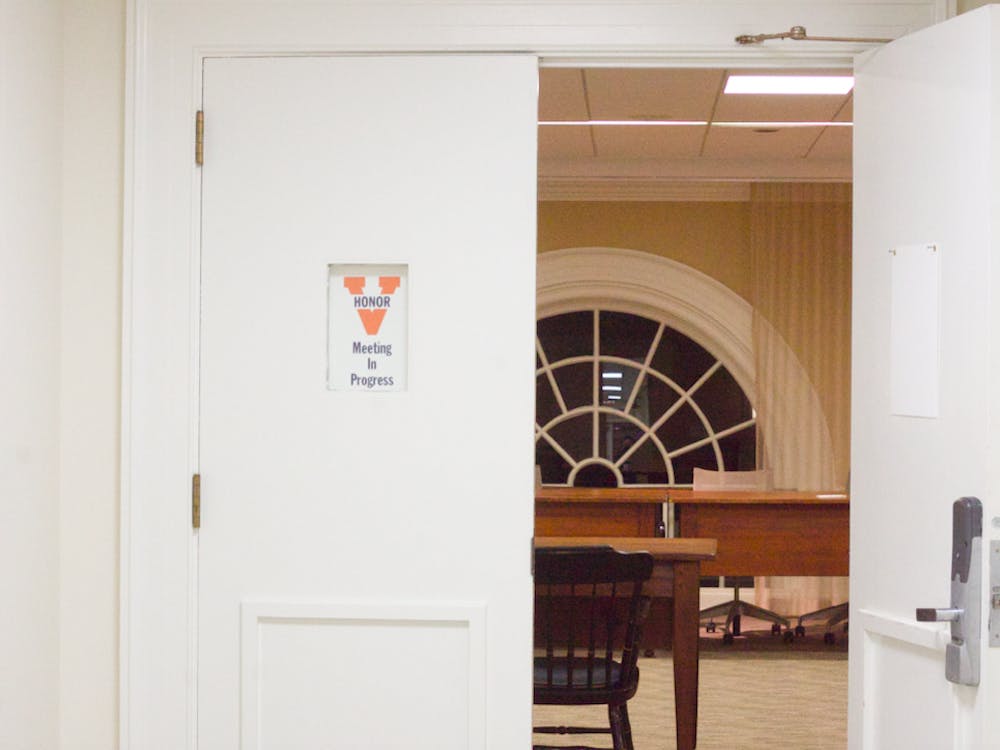Last week, fellow Opinion columnist Sawan Patel wrote a column arguing for increased recognition of U.S. foreign policy failures by the general public. He asserts if the public fails to recognize foreign policy problems exist, then the United States will be “destined to pursue the same disastrous policies over and over again while expecting a different result.” While more discussion around U.S. policy can only benefit all of us, I believe there is already a growing recognition of U.S. foreign policy failures. The real problem is that this recognition will not create real change because the majority of the power to shape foreign affairs policy is based in the executive branch. A good place to start for curbing the executive branch’s power of foreign policy is reforming the presidential veto, which historically has been used to allow foreign policy mistakes to go unpunished.
Despite what Patel argues, there is a growing recognition of U.S. foreign policy failure among people. The Pew Research Center survey Patel cites states that 37 percent of people see the Iraq War as a success, but he doesn’t point out that the number of people who support that position has been declining ever since the war has ended. A recent survey even shows that 56 percent of people disapprove of how Obama is handling foreign policy, a higher percentage than had an unfavorable view of Obama in general. To me this shows a growing recognition of U.S. foreign policy mistakes, not the opposite.
So people are actually less thrilled with what U.S. foreign policy is achieving, yet the change to U.S. policy Patel predicts has not yet materialized. This is because U.S. foreign policy is not very responsive to public opinion. There have been very few conflicts the United States has entered into since World War II that have been persistently popular, yet our government is still able to engage in aggressive foreign policy. There are a few examples where the government was influenced by public opinion, like in Vietnam, but even in these cases bad public opinion was only part of the reason we would exit a war. Election of the president doesn’t represent the power of public opinion that some think; promises to end wars while campaigning can evaporate as soon as a new president enters the White House.
Why is U.S. foreign policy so unresponsive to public opinion? It all lies in the fact that effective foreign policy power is held by the executive branch. There is an idea in foreign affairs called the “Two Presidencies Theory,” which states there are in essence two different presidents, one for domestic policy and one for foreign policy. In theory, Congress gives the presidency more deference in making foreign policy decisions because of information asymmetry and lack of effective foreign policy power. This leads to the executive branch being almost solely in charge of foreign policy. Take the Iran Nuclear Deal for example. The Republican Party, which has a majority in the House and Senate and opposed the deal, was not able to stop its passage.
At the very least, Congress should be able to punish people who engage in blatantly bad or illegal foreign policy. While the presidential veto remains in its current form Congress cannot do this. The Iran-Contra Affair is a great example of how ineffective Congress is in punishing illegal foreign policy. Reporters found out the U.S. government was illegally selling weapons to Iran, and this led to a great deal of criminal charges for executive officials. Not one of the people charged ever was actually convicted, with most being pardoned by the next president. Many of these people then went on to work in the government later in their lives.
How is this holding people responsible? I propose the presidential veto should not be applied to anyone in the executive branch. This would allow congressional committees to actually punish people who pursued illegal or bad foreign policy. Clearly, this is only the first step in making the government more responsive to criticism of its foreign policy. But creating real consequences for pursuing bad foreign policy is the best way to start making the executive branch more responsive to the concerns of Congress and the people.
Bobby Doyle is an Opinion columnist for The Cavalier Daily. He can be reached at b.doyle@cavalierdaily.com.





